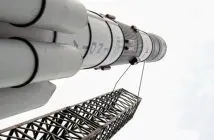
In a landmark move set to reshape Europe’s space landscape, Airbus, Leonardo, and Thales have signed a Memorandum of Understanding (MoU) to merge their core space-system and service activities into a single, integrated European space leader.
The new entity, which will employ around 25,000 people across Europe with a combined pro-forma turnover of €6.5 billion, aims to strengthen Europe’s strategic autonomy in space and boost competitiveness on the global stage.
Under the proposed structure, Airbus will contribute its Space Systems and Space Digital divisions, Leonardo will bring its Space Division, including stakes in Telespazio and Thales Alenia Space, while Thales will contribute its interests in Thales Alenia Space, Telespazio, and Thales SESO. Ownership will be shared, with Airbus holding 35%, and Leonardo and Thales each 32.5%.
The partnership is designed to deliver end-to-end space capabilities, excluding launch vehicles, encompassing satellite design, manufacturing, operations, and downstream data and service solutions. The integration seeks to consolidate Europe’s fragmented space industry and create a unified champion capable of rivaling U.S. and Chinese counterparts.
“This initiative marks a pivotal milestone for Europe’s future in space,” said Guillaume Faury (Airbus CEO), Roberto Cingolani (Leonardo CEO), and Patrice Caine (Thales Chairman & CEO) in a joint statement. “Together, we are building a strong, competitive and innovative European space ecosystem capable of leading globally and supporting Europe’s strategic independence.”
Pending regulatory approvals, the new company is expected to become fully operational by 2027. Industry analysts view the agreement as one of the most significant structural shifts in Europe’s space sector in decades, paving the way for deeper industrial collaboration, shared research and development, and a unified approach to future European space missions.
For Europe, this alliance signals a decisive step toward ensuring technological sovereignty and securing its position as a global space leader in the decades to come.





